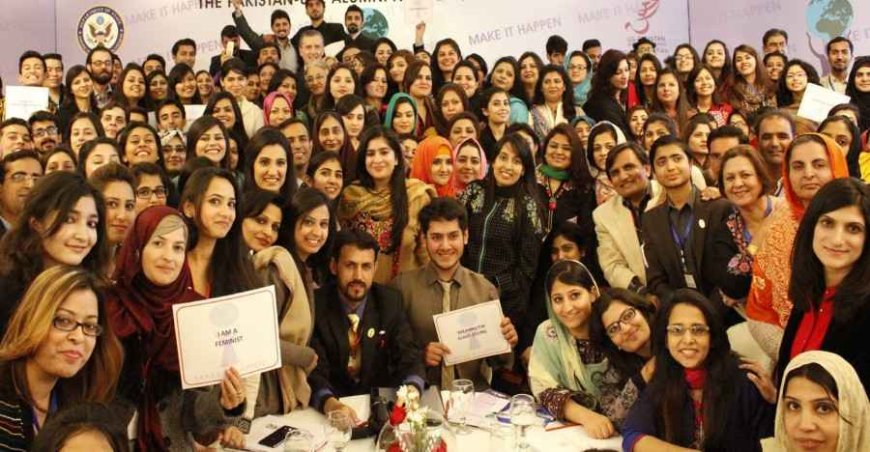Empowering Students: The Transformative Power of Student-Centered Learning
Education is no longer confined to the traditional teacher-centric approach; instead, student-centered learning has emerged

Education is no longer confined to the traditional teacher-centric approach; instead, student-centered learning has emerged as a transformative and empowering pedagogical approach. By placing students at the heart of the learning process, student-centered approaches prioritize individual needs, interests, and strengths. In this article, we explore the benefits of student-centered learning methods, such as project-based learning, personalized learning, and competency-based education, as they revolutionize classrooms and pave the way for more engaged and self-directed learners.
Understanding Student-Centered Learning
Student-centered learning is a pedagogical philosophy that shifts the focus from teachers imparting knowledge to students actively engaging in the learning process. It recognizes that learners are unique individuals with diverse learning styles and interests. By tailoring instruction to meet individual needs, student-centered learning creates an inclusive and empowering environment.
Rather than being passive recipients of information, students actively explore, discover, and construct knowledge. This hands-on approach fosters critical thinking, problem-solving, and collaborative skills, equipping students for success beyond the classroom.
The Power of Project-Based Learning (PBL)
Project-based learning is an integral part of student-centered learning, emphasizing practical application and real-world relevance. In PBL, students work on extended projects that address complex problems or challenges, often spanning several weeks or months.
The benefits of PBL are multifold. Firstly, it promotes deep engagement, as students become emotionally invested in their projects. Secondly, it nurtures creativity and innovation, allowing students to explore topics from diverse angles and propose their unique solutions. Finally, PBL cultivates teamwork and communication skills, preparing students for the collaborative nature of the professional world.
Personalized Learning: Meeting Individual Needs
One size does not fit all in education, and personalized learning recognizes this fundamental truth. This approach tailors the learning experience to accommodate students' diverse strengths, weaknesses, and interests. Personalized learning leverages technology, data, and differentiated instruction to create a customized educational journey for each student.
With personalized learning, students can progress at their own pace, ensuring they have a deep understanding of concepts before moving forward. The flexibility of this approach allows students to explore topics of personal interest, fostering intrinsic motivation and a lifelong love of learning.
Competency-Based Education (CBE): Mastery over Time
Competency-Based Education (CBE) is an assessment-driven approach that prioritizes mastery of skills and knowledge over a fixed time frame. In a competency-based model, students advance when they demonstrate proficiency in specific learning objectives, irrespective of traditional grade levels.
CBE empowers students to take ownership of their learning, ensuring they master essential skills before moving on. This approach provides targeted support to students who require additional time and resources, reducing the risk of falling behind.
Additionally, CBE aligns education with real-world requirements, as students graduate with demonstrated competencies that employers value. By focusing on outcomes, CBE prepares students for success in the dynamic and ever-evolving job market.
Benefits of Student-Centered Learning
Engagement and Motivation: Student-centered learning captures students' curiosity and interests, fostering a sense of ownership over their education. As learners actively participate in their learning journey, they are more engaged, motivated, and eager to explore new ideas.
Autonomy and Responsibility: In student-centered classrooms, students take charge of their learning, making choices and decisions that align with their goals and interests. This autonomy fosters a sense of responsibility and self-discipline, laying the foundation for lifelong learning habits.
Critical Thinking and Problem-Solving: Student-centered learning emphasizes critical thinking and problem-solving skills. As students engage in inquiry-based learning and real-world projects, they develop analytical and creative thinking abilities.
Personal Growth and Confidence: By acknowledging and nurturing students' individual strengths and achievements, student-centered learning boosts self-esteem and confidence. This positive self-image extends beyond the classroom, impacting various aspects of students' lives.
Collaboration and Communication: Collaborative projects and group activities in student-centered classrooms foster effective communication and teamwork. These essential soft skills are valuable in both academic and professional settings.
The Teacher's Role in Student-Centered Learning
In student-centered learning environments, the role of teachers transforms from knowledge providers to facilitators, mentors, and guides. Teachers support students as they navigate their learning paths, providing personalized guidance and feedback.
By closely observing students' progress, teachers can identify areas where individualized support is needed, ensuring that each learner receives the attention required for growth. This mentoring relationship strengthens the teacher-student bond and promotes a positive and supportive learning atmosphere.
Student-centered learning is not just an educational trend; it is a fundamental shift in how we approach learning and teaching. By embracing student-centered methodologies such as project-based learning, personalized learning, and competency-based education, we unlock the full potential of our students.
Through these approaches, education becomes an empowering journey of exploration, discovery, and growth, tailored to the unique needs and interests of each learner. As we continue to prioritize student-centered learning, we nurture a generation of engaged, self-directed, and lifelong learners who are poised to lead us towards a brighter and more innovative future.
